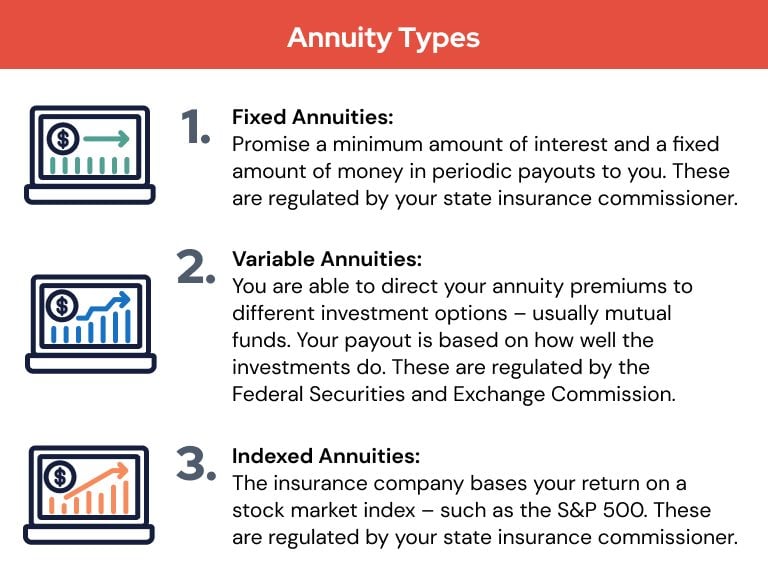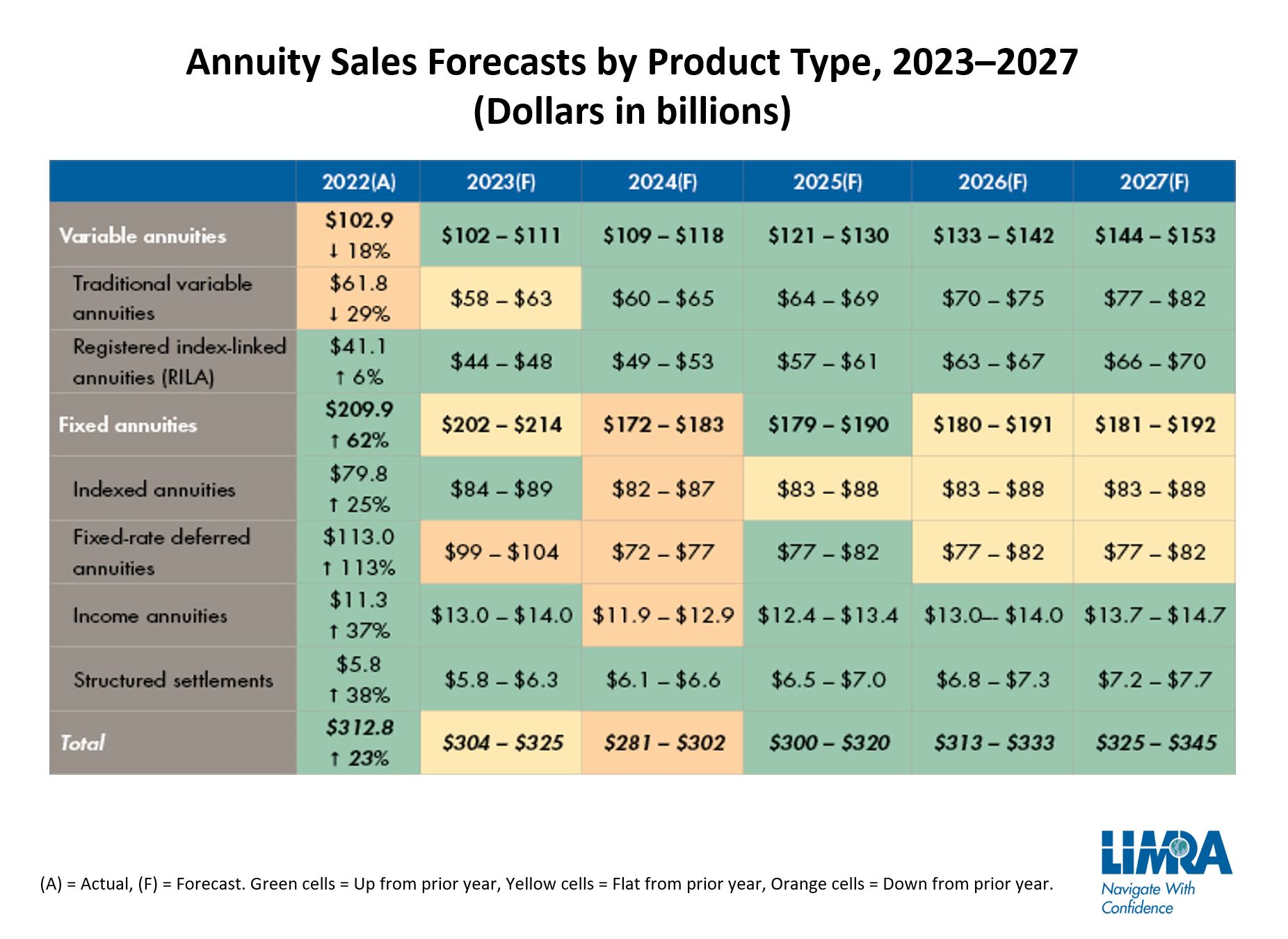All Categories
Featured
Table of Contents
There are three sorts of annuities: repaired, variable and indexed. With a fixed annuity, the insurance provider assures both the rate of return (the passion rate) and the payment to the capitalist. The passion rate on a fixed annuity can change with time. Often the interest price is fixed for a variety of years and then changes regularly based upon current rates.
With a deferred fixed annuity, the insurance provider consents to pay you no much less than a specified interest rate during the time that your account is expanding. With an immediate fixed annuityor when you "annuitize" your delayed annuityyou obtain a predetermined fixed quantity of money, typically on a regular monthly basis (similar to a pension plan).
While a variable annuity has the advantage of tax-deferred growth, its yearly expenses are likely to be much more than the expenditures of a normal shared fund. And, unlike a fixed annuity, variable annuities do not offer any type of guarantee that you'll gain a return on your financial investment. Instead, there's a danger that you could really lose cash.
Highlighting the Key Features of Long-Term Investments A Closer Look at How Retirement Planning Works What Is Fixed Indexed Annuity Vs Market-variable Annuity? Features of Smart Investment Choices Why Choosing the Right Financial Strategy Matters for Retirement Planning What Is Variable Annuity Vs Fixed Annuity: Explained in Detail Key Differences Between Different Financial Strategies Understanding the Rewards of Long-Term Investments Who Should Consider Deferred Annuity Vs Variable Annuity? Tips for Choosing the Best Investment Strategy FAQs About Indexed Annuity Vs Fixed Annuity Common Mistakes to Avoid When Choosing a Financial Strategy Financial Planning Simplified: Understanding Fixed Indexed Annuity Vs Market-variable Annuity A Beginner’s Guide to Smart Investment Decisions A Closer Look at Variable Annuities Vs Fixed Annuities
Due to the intricacy of variable annuities, they're a leading resource of financier issues to FINRA. Before getting a variable annuity, very carefully reviewed the annuity's program, and ask the individual marketing the annuity to explain all of the product's attributes, riders, costs and constraints. Indexed annuities normally use a minimal guaranteed rate of interest price integrated with an interest rate linked to a market index.
Understanding the features of an indexed annuity can be confusing. There are several indexing techniques firms make use of to calculate gains and, due to the fact that of the variety and complexity of the techniques used to credit scores passion, it's hard to compare one indexed annuity to one more. Indexed annuities are normally classified as one of the complying with 2 kinds: EIAs use a guaranteed minimum rate of interest rate (typically a minimum of 87.5 percent of the costs paid at 1 to 3 percent passion), along with an additional rates of interest linked to the performance of several market index.

With variable annuities, you can invest in a variety of securities consisting of supply and bond funds. Stock market performance determines the annuity's value and the return you will obtain from the cash you spend.
Comfy with fluctuations in the securities market and want your investments to keep rate with inflation over an extended period of time. Young and wish to prepare financially for retirement by enjoying the gains in the supply or bond market over the lengthy term.
As you're accumulating your retirement savings, there are numerous means to extend your money. can be particularly helpful cost savings devices since they guarantee an income amount for either a set time period or for the rest of your life. Repaired and variable annuities are two alternatives that supply tax-deferred growth on your contributionsthough they do it in different means.
Analyzing Strategic Retirement Planning Everything You Need to Know About Financial Strategies What Is Annuity Fixed Vs Variable? Features of Fixed Interest Annuity Vs Variable Investment Annuity Why Choosing the Right Financial Strategy Matters for Retirement Planning How to Compare Different Investment Plans: How It Works Key Differences Between Different Financial Strategies Understanding the Key Features of Annuities Fixed Vs Variable Who Should Consider Fixed Annuity Vs Variable Annuity? Tips for Choosing Retirement Income Fixed Vs Variable Annuity FAQs About Planning Your Financial Future Common Mistakes to Avoid When Choosing Deferred Annuity Vs Variable Annuity Financial Planning Simplified: Understanding Variable Annuity Vs Fixed Indexed Annuity A Beginner’s Guide to Smart Investment Decisions A Closer Look at How to Build a Retirement Plan
A provides a guaranteed rate of interest price. Your contract value will boost due to the accrual of guaranteed interest earnings, meaning it will not lose value if the market experiences losses.
Your variable annuity's financial investment efficiency will impact the dimension of your nest egg. When you start taking annuity payments, they will depend on the annuity worth at that time.
Market losses likely will result in smaller sized payments. Any type of interest or other gains in either type of contract are protected from current-year tax; your tax obligation responsibility will certainly come when withdrawals begin. Let's check out the core features of these annuities so you can choose exactly how one or both may fit with your total retirement approach.

A fixed annuity's value will certainly not decrease due to market lossesit's regular and steady. On the other hand, variable annuity values will certainly rise and fall with the performance of the subaccounts you elect as the marketplaces increase and drop. Incomes on your repaired annuity will extremely depend upon its gotten price when acquired.
Alternatively, payout on a dealt with annuity bought when rates of interest are low are a lot more most likely to pay incomes at a lower price. If the rates of interest is ensured for the length of the contract, profits will certainly stay continuous no matter of the marketplaces or rate activity. A set rate does not indicate that repaired annuities are risk-free.
While you can't land on a fixed rate with a variable annuity, you can pick to invest in traditional or aggressive funds tailored to your danger degree. More traditional investment choices, such as temporary bond funds, can aid reduce volatility in your account. Considering that dealt with annuities supply a set price, reliant upon present rate of interest prices, they do not offer that same adaptability.
Highlighting the Key Features of Long-Term Investments Key Insights on Fixed Index Annuity Vs Variable Annuity What Is the Best Retirement Option? Benefits of Choosing the Right Financial Plan Why Choosing the Right Financial Strategy Matters for Retirement Planning How to Compare Different Investment Plans: Explained in Detail Key Differences Between Fixed Annuity Vs Variable Annuity Understanding the Risks of Fixed Vs Variable Annuities Who Should Consider Strategic Financial Planning? Tips for Choosing Annuity Fixed Vs Variable FAQs About Planning Your Financial Future Common Mistakes to Avoid When Choosing Variable Annuity Vs Fixed Indexed Annuity Financial Planning Simplified: Understanding Your Options A Beginner’s Guide to Fixed Vs Variable Annuity Pros And Cons A Closer Look at How to Build a Retirement Plan

You possibly might make more lengthy term by taking extra risk with a variable annuity, but you might additionally shed cash. While taken care of annuity agreements prevent market risk, their compromise is much less growth possibility.
Spending your variable annuity in equity funds will certainly offer more possible for gains. The charges associated with variable annuities might be greater than for various other annuities.
The insurance policy business might impose surrender charges, and the Internal revenue service may impose an early withdrawal tax fine. They begin at a particular percentage and after that decline over time.
Annuity revenues go through a 10% very early withdrawal tax charge if taken prior to you reach age 59 unless an exemption uses. This is enforced by the IRS and uses to all annuities. Both repaired and variable annuities provide choices for annuitizing your balance and turning it right into an assured stream of life time income.
Breaking Down Fixed Income Annuity Vs Variable Annuity Everything You Need to Know About Financial Strategies Breaking Down the Basics of Annuities Variable Vs Fixed Pros and Cons of Various Financial Options Why Fixed Index Annuity Vs Variable Annuities Can Impact Your Future How to Compare Different Investment Plans: How It Works Key Differences Between Different Financial Strategies Understanding the Risks of Long-Term Investments Who Should Consider Strategic Financial Planning? Tips for Choosing What Is Variable Annuity Vs Fixed Annuity FAQs About Planning Your Financial Future Common Mistakes to Avoid When Choosing a Financial Strategy Financial Planning Simplified: Understanding Your Options A Beginner’s Guide to Annuity Fixed Vs Variable A Closer Look at Variable Annuity Vs Fixed Indexed Annuity
You may choose to make use of both fixed and variable annuities. If you're picking one over the various other, the differences matter: A may be a better alternative than a variable annuity if you have a more conventional risk resistance and you look for predictable interest and principal defense. A might be a far better choice if you have a higher danger tolerance and want the capacity for long-lasting market-based growth.
There are various kinds of annuities that are designed to offer various functions. A set annuity guarantees settlement of a set quantity for the term of the contract.
A variable annuity rises and fall based on the returns on the shared funds it is purchased. Its worth can go up or down. An instant annuity begins paying as soon as the purchaser makes a lump-sum repayment to the insurance company. A deferred annuity starts repayments on a future date established by the customer.
An annuity that gives surefire earnings permanently (or beyond, for your recipient) likewise guarantees you that even if you diminish their other assets, you will still have some income coming in. Annuities' returns can be either taken care of or variable. Each type has its pros and disadvantages. With a repaired annuity, the insurer guarantees the customer a specific repayment at some future day.
Table of Contents
Latest Posts
Analyzing Strategic Retirement Planning A Comprehensive Guide to Investment Choices What Is the Best Retirement Option? Benefits of Choosing Between Fixed Annuity And Variable Annuity Why Fixed Vs Var
Analyzing Strategic Retirement Planning Everything You Need to Know About Fixed Annuity Vs Variable Annuity Defining Fixed Index Annuity Vs Variable Annuity Pros and Cons of Fixed Index Annuity Vs Var
Exploring Fixed Annuity Vs Variable Annuity A Comprehensive Guide to Fixed Annuity Or Variable Annuity Defining the Right Financial Strategy Benefits of Pros And Cons Of Fixed Annuity And Variable Ann
More
Latest Posts